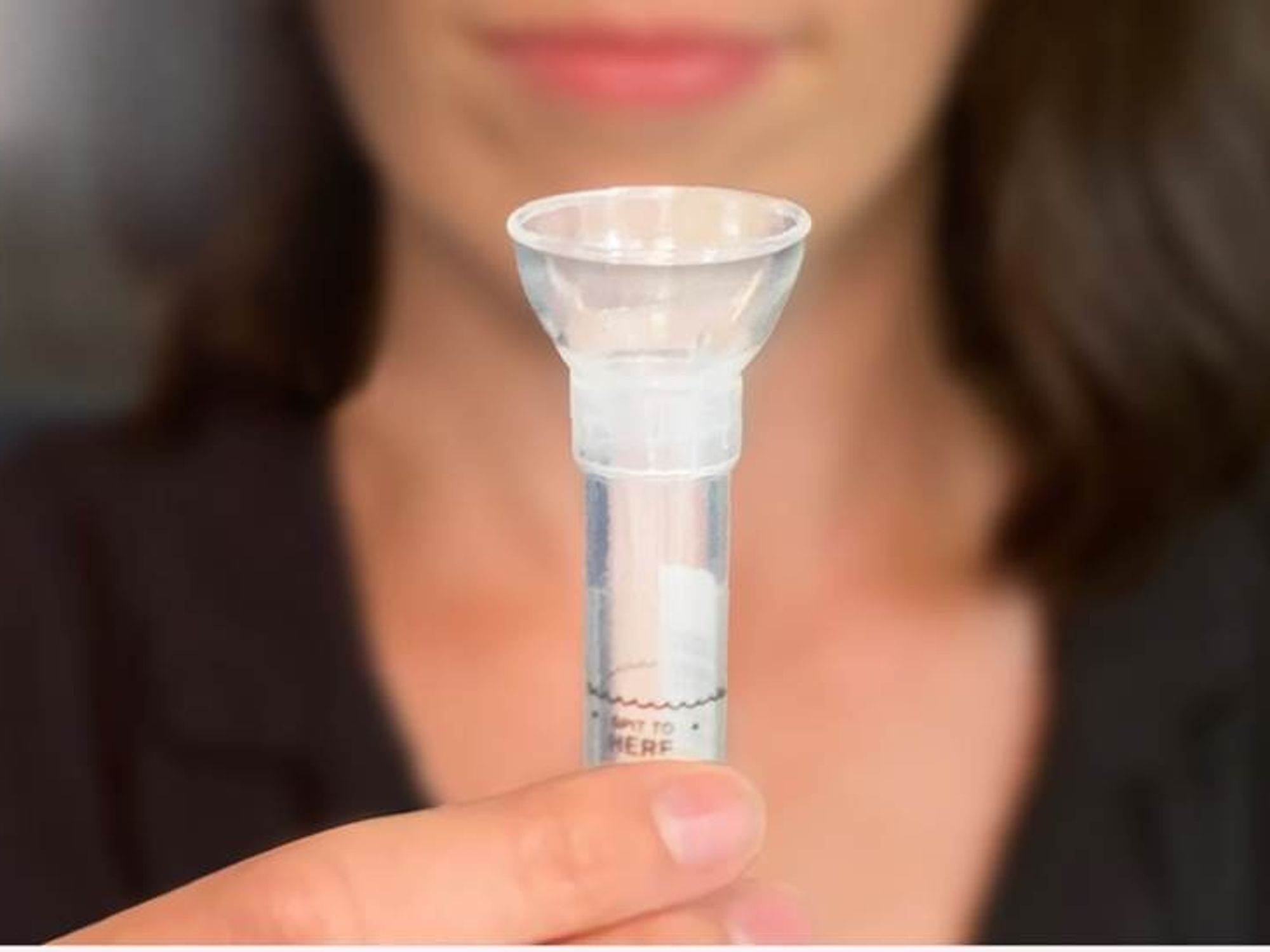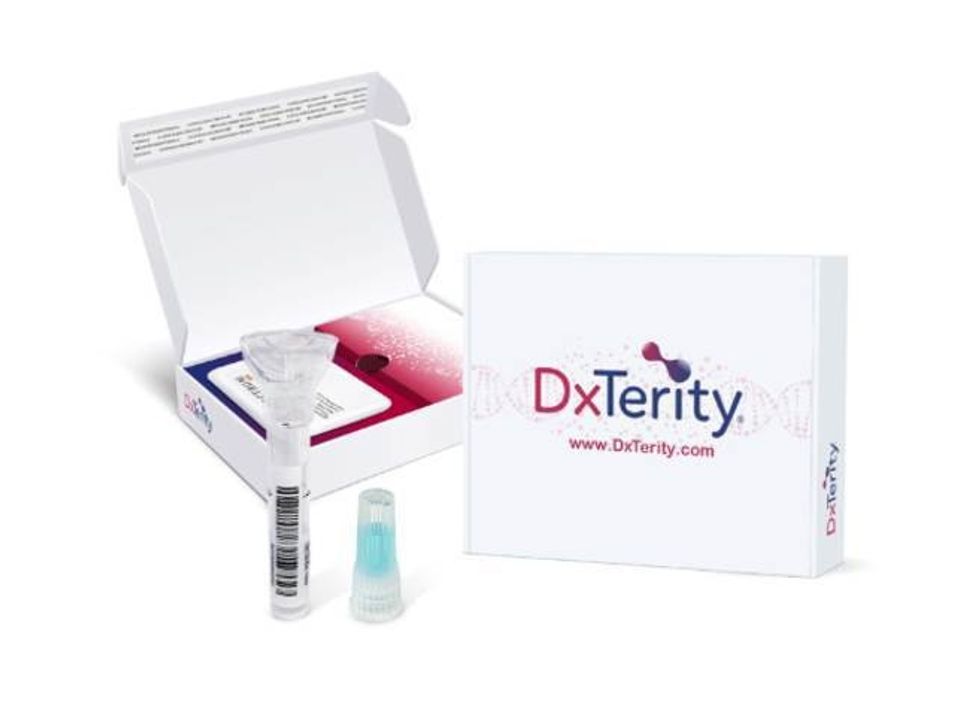FDA Approves DxTerity's At-Home Test for Companies Trying to Make Work Safe
Breanna de Vera is dot.LA's editorial intern. She is currently a senior at the University of Southern California, studying journalism and English literature. She previously reported for the campus publications The Daily Trojan and Annenberg Media.

The Food and Drug Administration approved genomics company DxTerity's at-home COVID test this week making the Rancho Dominguez-based company one of the few that partner exclusively with corporations to provide saliva-based tests that can be taken on your couch.
As workers return to work, businesses have been scrambling to create safety protocols and make workers feel safe. Individual consumers have been able to purchase at-home tests online, but the company said it hasn't been as easy for businesses.
"Our new at-home test provides the flexibility and reliability of results for people who are traveling, returning to work or simply want to ensure they can protect themselves and others," said Bob Terbrueggen, CEO of DxTerity, in a statement.
Companies can order testing kits given emergency use approval as part of their return-to-work program, and send them directly to employees' homes. Employees get results from DxTerity's lab within 48 hours of returning the sample. The company said it serves 150 company sites around the nation with more than 300,000 employees.
"What that translates to is corporations in Los Angeles, Hollywood movie studios, production companies — they can order testing directly from us for their employees to facilitate a safe return to work program, but also know they won't be impacting negatively testing available for the community," said Brett Swansiger, chief commercial officer.
The company is one of only four tests that are authorized to screen asymptomatic individuals for COVID. Such testing has to be much more sensitive to be able to catch infections even before symptoms develop. The other authorized testing for asymptomatic individuals is provided by Hologic, LabCorp and Kaiser Permanente.
Founded in 2006, DxTerity specializes in RNA monitoring for regular disease activity, but pivoted to coronavirus testing during the pandemic. It now has the capacity to process more than 10,000 samples daily of their RNA test.
The company offers businesses repeated employee screening once they return to work. The testing helps find workers who might have been infected and have the potential to spread the virus.
"Models certainly suggest that regular testing is one component of a good strategy for slowing the spread of COVID-19," said Nathaniel Bottman, a researcher at USC specializing in optimizing group testing for the virus.
Xencor, a biologic therapeutic company based in Monrovia, has one such agreement with DxTerity. Each of its 200 employees, 40% of which work on site, was tested on Memorial Day and has continued being tested weekly. Employees can also request additional testing, all of which is covered by Xencor.
DxTerity said they are in a good position as flu season rolls around and more people with flu-like symptoms test for COVID. Unlike laboratories that service hospitals, which may see a crush of new cases that slow processing, they maintain a more predictable caseload.
"It's anticipated that we're going to have 50 million people diagnosed with the flu this year, based on last year's incidents. If you put those 50 million people in the current testing pathway, along with COVID-19, all of those individuals will have to be treated as COVID-19 patients until proven otherwise," said Swansiger. "So that's going to create a huge surge in testing demand, which can prolong testing turnaround time."
According to the Center for Disease Control and Prevention COVID-19 Data tracker, there have been 137 million reported COVID-19 tests conducted this year.
- XPrize Puts Up $5 Million to Jumpstart Faster, Cheaper COVID-19 ... ›
- Covid Testing Soon Coming to LAX - dot.LA ›
- The COVID-19 Crisis is Creating a New Biotech Culture in L.A. - dot.LA ›
- FDA Approves Curative Inc's COVID-19 Test - dot.LA ›
- UCLA Gets FDA Approval for New COVID-19 Test - dot.LA ›
- Coronavirus Test Kit Facility Aims to Produce 10K A Day in L.A. - dot ... ›
- LA County Distributes Testing Resources as Omicron Grows - dot.LA ›
- Free COVID Tests from LA County Have Been Put on Pause - dot.LA ›
Breanna de Vera is dot.LA's editorial intern. She is currently a senior at the University of Southern California, studying journalism and English literature. She previously reported for the campus publications The Daily Trojan and Annenberg Media.






 Image Source: Skyryse
Image Source: Skyryse